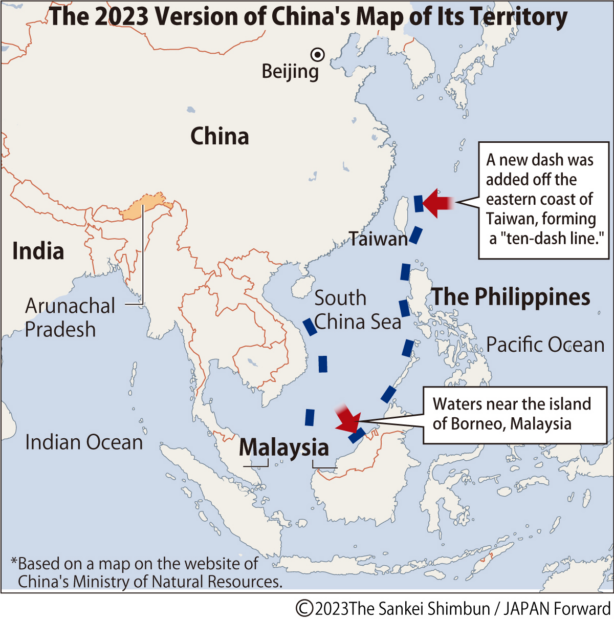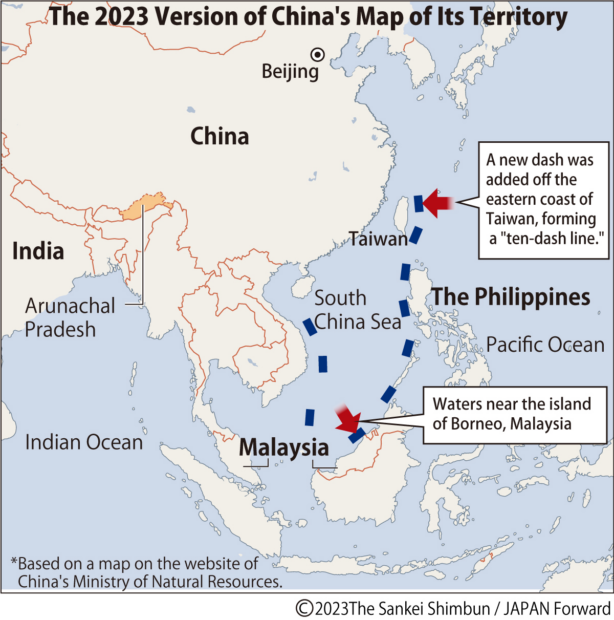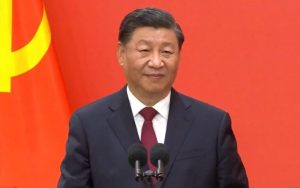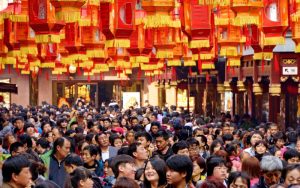
In a recent panel discussion at Parliament, Helen Clark was forthright in opposition against New Zealand joining AUKUS.
Not entirely wrong. If we align ourselves too far into an Australia-United States-United Kingdom-Japan-India military arrangement, it may well be that China views us as simply too far opposed to China that China puts limits on our trade just as it did with Australia. We got the message. From 2013 to 2023 China has gone from taking 18% to now taking 27% of all of our exports. If China chose to choke our trade we would be on our knees in weeks.
Clark stated:
AUKUS is an agreement clearly aimed at China, our major trading partner.”
That is Helen Clark’s strongest point: do not offend our economic master.
Helen Clark made China our master. It was Helen Clark together with her Minister of Foreign Affairs Phil Goff, our MFAT leads, and Fonterra, that encouraged our groundbreaking Free Trade Agreement with China. That was pre-Xi Jinping 2008, when Labour NZ, Labor UK, Bush Republicans, and Labor AU believed that the rationality of accelerated national development would require China and other authoritarian states to reason that since trade was the route to wealth, all countries would cooperate to trade and hence achieve wealth – and no other national interest mattered.
New Zealand’s lesson from the 2010s was that Fonterra as the captain of over 20% of our exports was inept and led us into disgrace, from which it took over a decade to recover and emerged diminished and aiming for bulk and volume over value. That is where the FTA and Prime Minister Clark’s Fonterra took the New Zealand economy.
So now we are indeed exceptionally vulnerable to China in economic terms. Clarks should accept it was the centre-left’s drive for all to be cured by trade that has put us here.
But is our trade and economic vulnerability a reason not to gear up into new security alliances?
It is entirely the reverse: with our increasing trade reliance on China, New Zealand needs security alliances that can stand up for us when we are bullied. Australia did not quake when it was bullied by China over trade not only because it had the economic power to resist, but also because it had the confidence of a strong security alliance with the United States.
The world is far more unstable than it was in 2008 when Clark left the Prime Ministership.
China is, since February 2023, far more aggressive to any other country coming near its newly militarised shoals within its Ten Dashed Line.

China has maintained a regular coastguard patrol around the Second Thomas Shoal since 2013 and has harassed Philippine resupply missions. Since 2022 it has sought to block resupply missions more regularly against the Philippines with increasingly aggressive tactics. Other countries that have run hard against Chinese aggression in the South China Sea include Indonesia, Malaysia, Brunei, and Vietnam.
New Zealand ought not need to be reminded of the Houthis choking off the Red Sea trade just a few weeks ago that states big and small need to recognise the importance of investing in maritime security, and to strengthening existing mechanisms to improve situational awareness and enhance common protocols. The Houthis and the Chinese may as well have been trading notes on grey-zone tactics. Responding requires not only clear arrangements with regional and global powers, but also broadened cooperation and capacity-building with local authorities and with the commercial shipping community that props our trade with China.
Former Australian Foreign Minister Bob Carr is certainly correct when he points out that AUKUS is basically a military submarine deal that really does no favours for Australian indigenous military capacity-building. He uses typically florid Australian diplomatic language describing that arrangement.
It is also a flagrantly anti-French deal. Not only from the point of view that the submarine deal itself used existing Australia-US security arrangements to reneg on the French-US submarine deal. But also from the point of view that the security breakage was a reversal of what would have been a bridge towards strong cross-Pacific cooperation that simply reflected the common influence Australia and France had across most of the Pacific. France, Australia, New Zealand and the United States have pretty much locked up the Pacific between them.
Source: Map courtesy of CartoGIS Services, Scholarly Information Services, The Australian National University.
But Australia choosing the United States as its preferred military supplier simply reflects its longstanding security relationship with the United States. The United States, not France, has the capacity to force China through economic arm-twisting to understand the folly of continued military aggression. Indeed the UNited States alone has that power.
It would be great if all Pacific small island states were simply awaiting convincing entreaties from New Zealand and Australia to bring them all into one grand and strong voice that generated stronger wealth and ambition and labour mobility. The Pacific Island Forum might have been imagined once to do that, but in reality it’s done the minimum of being a good diplomatic and aid dialogue. That’s it.
Even the Federated States of Micronesia prefer to stand in the middle of the Great Power see-saw and trade the weight of both sides.
Small Pacific states that default their preference to New Zealand or Australia or the United States are instead either already set, or they are ready to play one off against the other. A neutral rational dialogue for the common interests of Pacific trade and development is a mirage.
It would also be great if the world were in the same or even similar levels of security and democracy and secure trade that we were in 2008 when Helen Clark was in power. We aren’t. The Russian invasion of the Ukraine is getting worse not better and more likely to expand, not shrink. The Hamas invasion of Israel and Iranian attack on Israel and Israel’s massive response has no plan to stabilise or de-escalate. Same with China in the South China sea.
We also need to take China’s Xi at his word when he is clear with the US that he will require Taiwan to re-unify with China.
We should have listened when Hitler said he would take the Sudetenland. We should have listened when Stalin threatened to take over Eastern Europe. We ought to have listened when Putin said he was going to take out Ukraine by force. It’s not like they don’t warn us. Just take them at their word and act accordingly. Same with Xi.
Those were all countries acting in the national interest to defend and expand their power, not increase trade.
New Zealand is a kite dancing in a hurricane. Sorry Helen and Bob, New Zealand now has more national interests than trade alone. We are well beyond the peak of peace from the rule of international law.
It may well be that there is insufficient national interest to sign up to AUKUS Pillar 2. Maybe the French will generate an alternative proposal for our common security. Best of luck with that alternative now that our core ally Australia has smashed that relationship so badly.
Right now the question isn’t whether we can continue along the same primrose path of economic rationality leading to the triumph of permanent peace. Right now the question is: who will defend us when the military chaos now expanding in the world finally hits hard in our region, because that is what is really happening.
You can now read the most important #news on #eDairyNews #Whatsapp channels!!!
🇺🇸 eDairy News INGLÊS: https://whatsapp.com/channel/0029VaKsjzGDTkJyIN6hcP1K
























